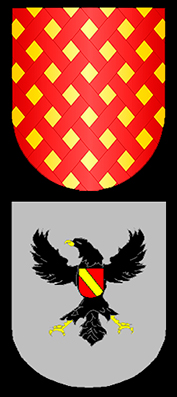Méndez is a common Spanish surname of Germanic origin, originally a patronymic, meaning Son of Mendo, Menendo, or Mem. A longer form sharing the same root is Menéndez, while the Portuguese form is Mendes. Méndez may refer to:
Pérez is a very common Castilian Spanish surname of patronymic origin.
Varela is a Galician, Spanish and Portuguese surname originating from Galicia.
Ramos is a surname of Spanish and Portuguese origin that means "bouquets" or "branches". Notable people with the surname include:

Suárez is a common Spanish surname of Germanic origin, of which Juárez is an alternative form. It is widely spread throughout Latin America as a consequence of colonization. In origin it is a patronymic meaning "son of Suero" or "son of Soeiro". It may be derived from the Latin name Suerius, meaning "swineherd", in turn related to the Visigothic "surhari". The surname originates to the province of Asturias in northwest Spain. This surname is most commonly found in Mexico, Spain, Cuba, and Argentina.
Torres is a surname in the Catalan, Portuguese, and Spanish languages, meaning "towers".
Vásquez is a surname of Galician origin, which later spread all over the Spanish-speaking world. Alternative spellings of the name include Vázquez or Vasques, and Vasquez or Vazquez.
Álvarez is a Spanish surname of Germanic origin, a patronymic meaning "son of Álvaro". Notable people with the surname include:

Castro is a Castilian surname popular in Spanish and Portuguese speaking countries, coming from Latin castrum, meaning a castle or fortress. Its English equivalent is Chester.
Barros is a Portuguese and Galician surname. It may refer to:

Ayala is a toponymic surname, originally de Ayala, deriving from the town of Ayala/Aiara in the province of Álava, in the Basque Country, northern Spain.
Cabrera is a Spanish surname. It is the feminine form of "cabrero", meaning goatherd. Notable people with the surname include:
Rivero is a surname. Notable people with the surname include:
Ines, and variants, is a feminine given name related to Agnes.
Blanco is a surname of Spanish origin, meaning "white". Notable people with the surname include:

Correa is a Spanish surname. Correa is found throughout the Iberian Peninsula. Correa means 'leather strap', 'belt', 'rein', 'shoelace', plural correas. Correa is from the Latin corrigia 'fastening', from corrigere 'to straighten', 'to correct'), applied as a metonymic occupational name for a maker or seller of such articles. Correa is spelt Correia in Portuguese and Galician.

López or Lopez is a surname of Spanish origin. It was originally a patronymic, meaning "Son of Lope", Lope itself being a Spanish given name deriving from Latin lupus, meaning "wolf". Its Portuguese and Galician equivalent is Lopes, its Italian equivalent is Lupo, its French equivalent is Loup, its Romanian equivalent is Lupu or Lupescu, its Catalan and Valencian equivalent is Llopis and its basque equivalente is Otxo.

Herrera is a surname of Spanish origin, from the Latin word ferrāria, meaning "iron mine" or "iron works" and also the feminine of Latin ferrārius, "of or pertaining to iron"; or, alternatively, the feminine of Spanish herrero, which also gives the surname Herrero. Variants of the name include Errera, Ferrera and the less common Bherrera. Its equivalent in Portuguese and Galician is Ferreira. Also, because of Spanish naming customs, some people are listed here with their family name as their second-to-last name.
Novoa or Nóvoa is a Galician surname that later became widespread in the Spanish-speaking world. It is a toponymic surname referring to the former juridical district of Terra de Nóvoa, in the Ourense province, Galicia. The Spanish variation of the surname is Noboa.
Domingo is a Spanish name based on Latin Dominicus meaning 'of the Lord'. Also means Sunday. Related names include Dominic, Domingos, Domingues, and Domínguez.






